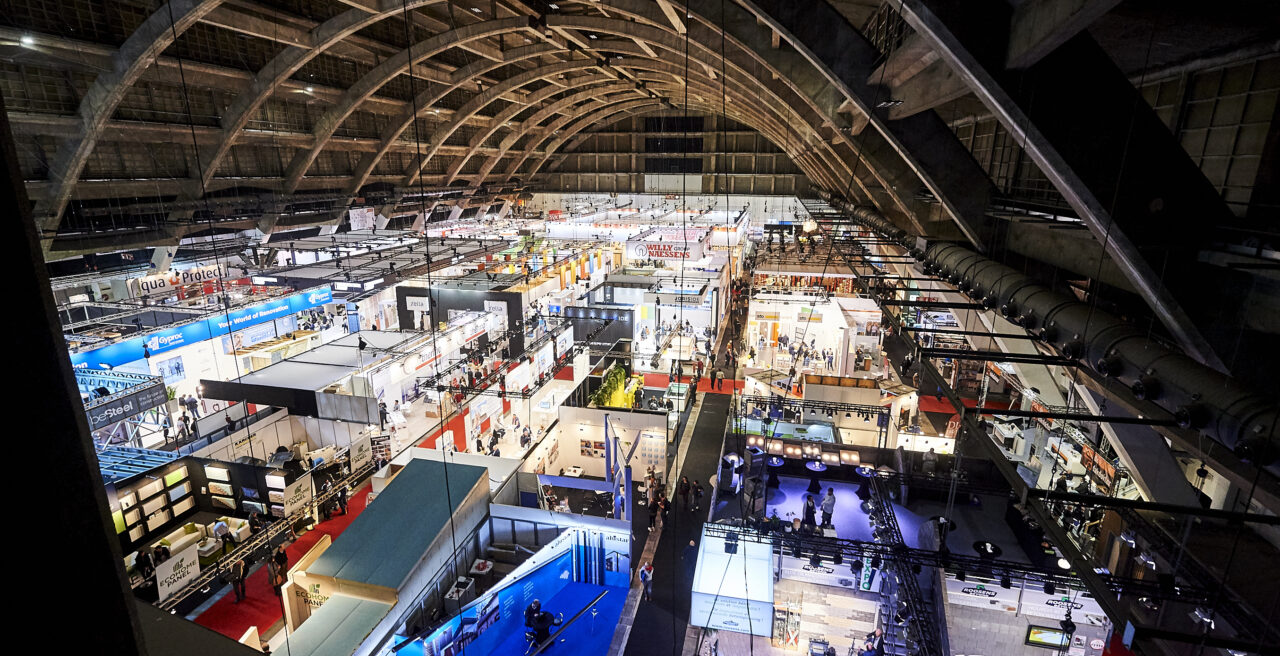An evaluation from the patient’s perspective is an important parameter to assess care quality. Research into patient satisfaction is definitely not something new but is generally approached from a predominantly medical point of view. This is despite the fact that 45% of patients’ experience is determined by non-medical factors such as waiting times, accommodation and facilities, meals, etc. That is why Profacts gauged the satisfaction of Belgian patients by referring to 6 non-medical parameters: mobility, care organisation, hospital costs, facilities, provision of information and contact with the care staff.
Mobility
Although the way in which patients choose a hospital varies, the distance rather than previous positive experience (33%), the hospital’s reputation (22%) or the doctor’s recommendation (21%) seems to be the most important determining factor for most of them (40%). On average, the distance to the care institution is 13.8 km and 3 out of 4 Belgians travel this distance by car. The vast majority are less satisfied with the prices that the hospitals charge for parking.
Only 14%, mostly lower social classes, rely on public transport to travel to a hospital. It appears that most people are very positive about the (short) distance to the closest stop.
Health care organisation
Two years ago, the Minister of Social Affairs and Public Health, Maggie De Block, encouraged hospitals to collaborate with one another. As a result, patients can rely on basic care everywhere and at any time. However, more complex or less common surgery is concentrated in only one or two hospitals within a regional network.
It appears that the vast majority of the population have no concerns regarding hospital mergers, and it appears that 40% do not even know whether or not a hospital forms part of a group.
Even though 30% of the Belgians fully understand service centralisation in certain hospitals, only 20% of them find this a good decision. Especially men, the Flemish and people over the age of 65 years are most positive about this.
High cost price
Hospital invoices have been a debatable point for many years. There is much indignation regarding fee surcharges. Then there is also the whole argument regarding private rooms. Is it normal that hospitals in this day and age charge surcharges according to room type? Opinions differ. More than half of the Belgians do not understand why doctor’s fee surcharges need be paid for private rooms. There is more understanding when it comes to private room surcharge as such.
Payment for additional services in the case of the next admission is mainly considered if this can contribute to increased comfort, i.e. the so-called “comfort surcharges”, e.g. use of a refrigerator in the room, a TV, etc.

Facilities
Tasty and healthy food in hospital is important and is a contributing factor in the quality of a patient’s stay. Almost half of the Belgians are relatively satisfied with the meals that they are given during their stay in hospital. Approximately 1/3 of the visitors to the hospitals go to the hospital restaurant or cafeteria. As a rule, the meals provided in the restaurant are evaluated positively.
It appears that only 1 out of 2 Belgians going to see patients is very positive about the visiting hours. The space available in the room during the visit also seems to be met with less satisfaction.
And how does the patient personally experience comfort? Flemish patients are generally very positive. Almost 3 out of 4 are very satisfied with their bed, the possibility of receiving visitors in the room and the visiting hours. Apparently, there is still room for improvement when it comes to creating a more homely or cosier atmosphere.
Providing information
It goes without saying that, in the first place, every patient wants to be given the best possible treatment. What is more, they also want to be optimally informed about their (medical) situation.
In April 2018, the website “Mijn Gezondheid/MaSanté” (“My Health”) was created, an online portal where citizens can consult their health details. This platform enables citizens to click to the summary of their medical record kept by their personal physician and details from hospitals. This is a good initiative, except that there is room for improvement regarding awareness.
It appears that an average of 60% of the Belgians still do not know of the portal. The figures are especially low in Wallonia and Brussels and the platform is still unknown to 75% and 63%, respectively. In Flanders, the proportion of Flemish people who are aware of the platform is one out of two.
But, “aware of” does not yet mean that the portal is indeed consulted. Although 3 out of 4 Belgians are indeed interested in doing so, it appears that only 9% have actually already consulted it.
Our study shows that there is an important role to be played for health insurance funds and general practitioners to create awareness for the platform. As a matter of fact, most Belgians expect to be informed by these means.
In general, patients appear to be satisfied with the information that they are given regarding visits to the hospital, as well as the way in which they are positively received. However, only 1 out of 3 are satisfied when asked for information that they are given regarding the cost for treatment or admission.

Care staff
The quality of the relationship between patient and carer is also important when checking for patient satisfaction. As a rule, patients feel care staff respect them and their family members physically and mentally. This does not score as well with visitors, however, although 1 out of 2 visitors are highly positive.
Patients also attach much importance to good communication with the nursing and care staff. The possibility to ask questions, both before and during hospitalisation/consultation is greatly appreciated, and slightly less than 70% are also satisfied with this. The only factor that the carer could improve is the communcation about the course of the treatment.
With regard to the language used, 80% of the Flemish people expect the doctors or (nursing) staff to address them in their mother tongue. This figure is lower in Wallonia and, especially in Brussels, expectations in this regard are at their lowest.
Are there any expectations regarding religion in the health care sector? Not really. Belgians actually expect a non-religious or neutral approach from hospitals.
***
(*) - Online study among 607 Flemish people (21 February – 3 March 2019). Evaluation into satisfaction with most recent visit to the hospital, representational sample.
- Online study among 1000 Belgians (4 March – 17 March).



